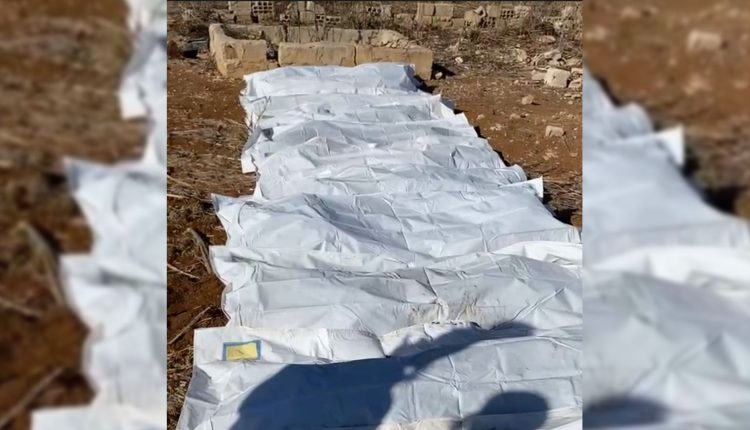Mass Grave Unearthed in Southern Syria’s Daraa, Linking Atrocities to Former Regime
DARAA, Syria (North Press) – A mass grave containing 20 decomposed bodies was discovered on Monday near the Damascus-Daraa highway in southern Syria, raising new allegations against the former regime of Bashar al-Assad for its role in the disappearance of civilians during the Syrian conflict.
Local sources revealed the grim find on farmland near the western outskirts of Azraa, in Daraa’s eastern countryside. The discovery marks the first mass grave uncovered in the region since the fall of Assad’s regime earlier this month.
A Decade-Old Atrocity
A local official from a community militia, speaking on condition of anonymity, stated to North Press that the bodies were found in a severely decomposed state, suggesting they were buried approximately a decade ago.
“The site was used as a dumping ground for detainees executed during the peak of the regime’s crackdown,” the official claimed.
Medical professionals have also supported the claim, citing the condition of the remains as consistent with prolonged burial.
Links to Former Regime Officials
The initial investigation points to a notorious figure from the Assad regime: Warrant Officer Ammar al-Qasim, also known as “Abu Jaafar,” who led the military intelligence unit in the region.
“Abu Jaafar is widely believed to have orchestrated the arrests and disappearances of dozens of civilians from this area,” the official added.
Al-Qasim’s tenure in the region was marked by widespread allegations of human rights abuses, including arbitrary arrests, torture, and enforced disappearances. Survivors have long accused his unit of executing detainees in clandestine locations.
Recovery Efforts Underway
A specialized team from a military operations unit oversaw the exhumation of the bodies. The remains were placed in forensic bags and transferred to authorities for identification and further examination.
This discovery has reignited fears of more mass graves hidden across Daraa, a province that bore the brunt of state-led violence during the conflict. In 2018, a smaller mass grave was unearthed in the region, but this recent find is particularly significant given the context of the regime’s collapse.
History of Enforced Disappearances
Daraa, often referred to as the birthplace of the Syrian uprising in 2011, endured severe crackdowns by the Assad regime. Human rights organizations, including Amnesty International and Human Rights Watch, have documented systematic disappearances and extrajudicial killings in the area.
The Syrian Network for Human Rights (SNHR) estimates that tens of thousands of civilians were forcibly disappeared during the conflict, many of whom are believed to have been executed and buried in undisclosed locations.
The international community has yet to respond to the latest discovery, though human rights advocates are calling for immediate action to uncover and document similar sites across Syria.
This grim discovery highlights the enduring scars of Syria’s decade-long war, as families await closure and the nation grapples with its history of state-led atrocities.

